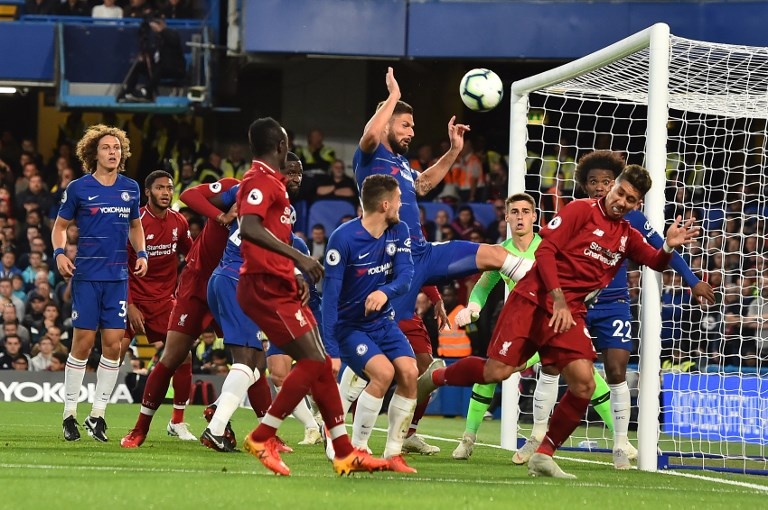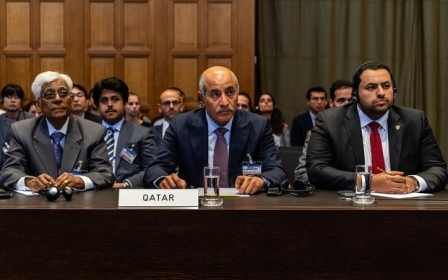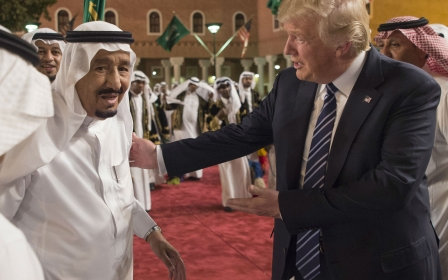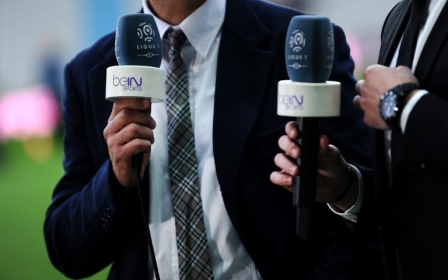Qatar's beIN sues Saudi Arabia over 'state-sponsored broadcast piracy'

Qatar's beIN Media Group on Monday filed a damages claim for more than $1bn against Saudi Arabia over what it called the "state-sponsored illegal broadcast piracy" of sporting events including English Premier League and Champions League football and Formula 1 motor racing.
beIN, which was established by Al Jazeera in 2012, has been banned from broadcasing in Saudi Arabia since Riyadh imposed a blockade against neighbouring Qatar in June last year.
Since then, sporting events for which beIN holds exclusive rights in the Middle East have been widely broadcast and streamed online in the kingdom by a pirate channel, beoutQ, which beIN executives and sporting officials accuse of having links to Riyadh-based satellite provider ArabSat.
In a statement, beIN accused Saudi Arabia of "flagrantly breached international law and norms" and "actively supporting" beoutQ.
"As a result of the arbitrary and discriminatory measures implemented by Saudi Arabia specifically against beIN – which have also included baseless competition law proceedings, ongoing harassment of beIN employees and disruption of major beIN sporting events – beIN has suffered damages in excess of US$1 billion, which continue to increase with each passing day," the statement said.
Political football
beIN said it would seek full compensation for damages under an Organisation of Islamic Co-operation agreement on the protection of investments among member states and using UN arbitration rules.
The OIC agreement enables either party in a dispute to ask the organisation's secretary-general to form an arbitration panel to reach a final decision which must be respected by both parties.
“After failed attempts to resolve this dispute through dialogue, we have now been forced to issue a Notice of Arbitration due to Saudi Arabia’s concerted campaign to prevent beIN from operating in the country, despite beIN having the legal and commercial right to do so," said Sophie Jordan, beIN's executive director of legal affairs.
"Clearly, we are being unfairly used as a political football in a wider regional dispute. But this case has implications far beyond beIN – in beoutQ, Saudi Arabia has created a plague of piracy and unless the whole sports, entertainment and broadcast industry takes a stand, its impact will be devastating and irreversible.”
Middle East Eye contacted ArabSat for comment on the latest allegations but had not received a response at the time of publication.
In July, the company denied any involvement with pirate broadcasting and accused beIN of launching a "smear campaign" against it after football world governing body FIFA said it had begun legal action in Saudi Arabia over beoutQ broadcasts of World Cup matches during this year's tournament in Russia where Saudi Arabia was among the 32 finalists.
“Arabsat has always been confident that our satellite network has not been used by beoutQ,” said Khalid Balkheyour, Arabsat’s CEO. “Nevertheless, we undertook a very costly investigation to eliminate any doubts and to provide evidence to share with FIFA and the world.”
Saudi Arabia has also denied any involvement in beoutQ.
Qatar launches WTO case
In a separate case, Qatar on Monday also launched proceedings against Saudi Arabia at the World Trade Organisation, accusing its Gulf neighbour of violating the intellectual property rights of Qatari citizens and entities and citing the case of beIN.
Qatar's Ministry of Economy and Commerce said Saudi Arabia had "refused to take any effective action against beoutQ; restricted or otherwise frustrated beIN's ability to pursue civil actions before the Saudi courts; denounced beIN's requests to investigate and prevent the pirate's unauthorized broadcasts; and promoted public gatherings with screenings of beoutQ's unauthorized broadcasts".
beoutQ had also been able to sell subscription packages and set-top decode boxes in stores across Saudi Arabia, it said.
A request for formal consultations is the first stage of a potentially lengthy process to settle disputes between WTO member states.
If the parties to a dispute are unable to reach a settlement within 60 days of consultations beginning, the complaining party can request the establishment of a panel to investigate further and advise the WTO's Dispute Settlement Body.
Saudi Arabia and other Arab states including the United Arab Emirates, Bahrain and Egypt imposed the blockade against Qatar on 5 June 2017, accusing the Gulf peninsula of sponsoring terrorism; a charge that Qatar denies.
Qatar has sought to use other international entities to challenge the impact of the blockade.
In July, the United Nation's International Court of Justice ordered the UAE to restore the rights of Qatari citizens living in the country following a complaint by Qatar that its citizens had suffered racial discrimination as a consequence of the blockade.
New MEE newsletter: Jerusalem Dispatch
Sign up to get the latest insights and analysis on Israel-Palestine, alongside Turkey Unpacked and other MEE newsletters
Middle East Eye delivers independent and unrivalled coverage and analysis of the Middle East, North Africa and beyond. To learn more about republishing this content and the associated fees, please fill out this form. More about MEE can be found here.




